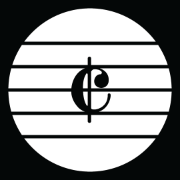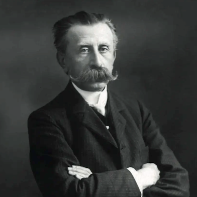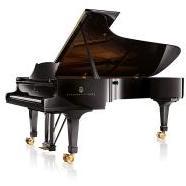Leaderboard
Popular Content
Showing content with the highest reputation on 05/22/2023 in all areas
-
Hello everyone, dear friends ! Here is my last composition for orchestra. Always in the same spirit, but very happy to get to the end. I use here a thematic reservoir already used in a previous work, which was written for singing and piano, then orchestrated. But the development is totally different and I don't take over the structure. I wanted to favor the whimsical, squeaky side, certainly but not dark, with as much derision as possible. Thank you for your encouragement and comments that I look forward to! (And a small subscription on my Youtube page would also make me happy).1 point
-
Hi everyone! I am presenting the fourth movement of my Piano Sonata no.2 in A-flat major. The previous 3 movements are now all sorted in the post of the 1st movement one so if you are interested, go and check them out! This is my favourite movement of the entire sonata. First it's in C sharp minor, my favourite key. Second it really has something personal in it. The structure of it is very simple: 00:03 First Part, melody in right hand and octave accompaniment in LH 04:13 Second Part. original melody to the right with added Lamentoso in RH 07:34 Coda. Is that a dark reply to the first movement? The movement is named a "Lyrics" for me. Chinese poems are known to be lyrics, rather than long epics like those of Homer or Milton or Goethe. I'm trying to adapt the rhythm of Tang Poem, Lüshi here which contains five or seven words in each sentence with standard rhythm to recite it. It also contains many couplets. With reference to it I have a standard rhythm maintaining all over the movement and is having many couplets musically. In the first part the LH keeps having the octave accompaniment which can be boring but for me it helps create an unsettling feeling. In the second part, the original melody in the RH of the first part is transferred to the LH, while a lamentoso is added in the right hand. The coda returns to the first part version of the meldoy, but look at the ending. Is that a dark deeply or quotation to the con delore section of the first movement, b.82-98? The tragedy uncertain there is confirmed here. I myself feel like this movement is quite unrelated thematically to the rest of the sonata. But it's related in a different way. It represents the real hurdle in the subconscious finally emerges in front of you. The unsettling C# minor (Db minor) is hinted all over the first three movements: The con delore section (b.82-98) in first movement, that surprising Db minor cadence near the end of the second movement (which by the way is the answer of why there's agitation there), and the coda of the third movement tainted by Db minor. All prepares for this movement. I find this piece somewhat similar to the second movement of Schubert's D960, which is also in C sharp minor, but only after finishing this sonata. The movement for me is very dark hence very personal. I'm sure I have something dark personally and here it's expressed authentically. I literally get depressed every time after listening to this movement. How do you feel? Do you feel this movement boring or so with so slow a tempo and unchanging things? Let me know! As usual I'm going to attach the PDF and mp3 of the movement: Piano Sonata no.2 4th mov 26-04-2023.pdf Piano Sonata no.2 4th mov.mp3 (Please ignore the first three lines of p.1 as it's from 3rd movement!) And as usual I will attach the youtube video here of the scored version of the movement. There's some delay of the visual here though LoL... Please subscribe my channel! (Self advertising LoL!!!!!!!!!) Hope you all "enjoy" the movement! The fifth movement and the finale of the sonata will be a long way to go, as I don't start practicing it due to busy schedule and other accompanying stuff to do. See you soon! Henry1 point
-
Hi there! This is really good! There were some things that surprised me, but nothing much wrong. I was only able to listen to the 1st movement, but I'll try to get back to the rest of it. The introduction in A minor I thought had to be a mistake, but then you took up the sonata proper in A major, I saw what you were doing. Unusual, but not without precedent. The second theme - the key signature goes to C, but thematic material seems to hover at or near G - one would expect this theme to be in E, but again this is not without precedent. The bottom of Pg4 to the top of pg5 - delightful, loved it! Great buildup to the recapitulation. The 2 measures rest on Pg11 seemed too long to me - are you sure a single measure of grand pause might not be enough here? Like I say, very good work!1 point
-
I'm not an expert in analyzing music But i really liked it, it's awesome, i will also listen to the other movements1 point
-
Hey @Henry Ng Tsz Kiu! Thanks for giving this a listen. I think I understand your concern here, but I was only following what the theme did. This isn't the first time I've heard this. I gave cleansing breaths every 8 measures, and catch breaths at least every 2 to 4 measures, hoping that would be enough. I know a virtuoso bassoonist for whom I've written similar stuff in my Sinfonia Concertante, and she said it was challenging but doable. This kind of thing happens in Harmoniemusik from time to time - a lot of the guys in Harmonies (wind bands) were highly proficient, if not virtuosi - but I may consider dividing this extended solo between Bassoon I and Oboe I. Thanks again!1 point
-
Hey!!! To be said, I was looking forward to your reaction because I know that you make it a point of honor to thoroughly analyze what you hear. So it's very interesting to read you. I'm super glad you like it. You talk about imagination and I think you make a striking proof of it in your comment! Bravo (especially since I do not provide the edited score, so you knew how to be attentive to the smallest detail of your listening. The visual gives some leads but remains more whimsical than didactic!). Episode 6 is just a clumsiness! But I can have fun composing one in the appendix (it might be called Episode 6. Oblivion)... Regarding the whistle, it's always something that amuses me. Which awakens the audience well and can freeze the blood. Not for nothing that he is so popular to call a lost quidam to order. A few words about the gravedigger mentioned in Jules Laforgue's poem to which I refer: First, Laforgue calls it "Fossoyeux" and not "fossoyeuR", which is a popular distortion in French, giving a folkloric song color, a squeak, of this country common sense seen with a certain irony. This sets the tone of the poet's intention. It is also often that Laforgue uses a popular spoken with characteristic contractions and elisions. This gives his style a mixture of sublime and derisory, always very inspiring, I find. Moreover, in the poem, all the happy world is pulled sooner or later by this good gravedigger who appears like a horrible scarecrow under the moon. Here is the text by the way and an automatic translation (excuse me if it's too little poetic)... Complainte de l’oubli des morts Jules Laforgue Mesdames et Messieurs, Vous dont la mère est morte, C’est le bon fossoyeux Qui gratte à votre porte. Les morts C’est sous terre ; Ça n’en sort Guère. Vous fumez dans vos bocks, Vous soldez quelque idylle, Là-bas chante le coq, Pauvres morts hors des villes ! Grand-papa se penchait, Là, le doigt sur la tempe, Sœur faisait du crochet, Mère montait la lampe. Les morts C’est discret, Ça dort Trop au frais. Vous avez bien dîné, Comment va cette affaire ? Ah ! les petits mort-nés Ne se dorlotent guère ! Notez, d’un trait égal, Au livre de la caisse, Entre deux frais de bal : Entretien tombe et messe. C’est gai, Cette vie ; Hein, ma mie, Ô gué ? Mesdames et Messieurs, Vous dont la sœur est morte, Ouvrez au fossoyeux Qui claque à votre porte ; Si vous n’avez pitié, Il viendra (sans rancune) Vous tirer par les pieds, Une nuit de grand lune ! Importun Vent qui rage ! Les défunts ? Ça voyage…. Jules Laforgue, Les Complaintes Complaint of the forgetfulness of the dead Jules Laforgue Ladies and gentlemen, You whose mother died, He's the right gravedigger Scratching at your door. The dead It's underground; It doesn't come out Hardly. You smoke in your bocks, You're soldered some idyll, Over there sings the rooster, Poor dead outside the cities! Grandpa was bending over, There, the finger on the temple, Sister was crocheting, Mother was mounting the lamp. The dead It's discreet, It's sleeping Too cool. You had a good dinner, How is this case going? Ah! The little stillborn Don't pamper each other! Note, of an equal stroke, In the book of the cash register, Between two prom fees: Interview falls and mass. It's cheerful, This life; Huh, my friend, O ford? Ladies and gentlemen, You whose sister died, Open to the gravedigger Who slams at your door; If you don't have pity, He will come (without grudges) Pull you by the feet, A night of great moon! Troublesome Wind that rages! The deceased? It's traveling... Jules Laforgue, Les complaintes I had composed a melody for voice and piano, being young, orchestrated recently (version on my Youtube page, on this poem, of which I take up here thematic elements, but which go here in different directions. Thank you in any case for your visit. It gives me great pleasure!1 point
-
Greetings. This is my very first post on the Young Composers community, and I would like to share one of my piano compositions that I had composed several weeks ago. This piano piece is a polonaise, which was written to imitate Frédéric Chopin's compositional style. Due to my busy schedule, I did not have the time to practice and record this piece. So instead, the audio file was exported from MuseScore 2.3.2. Any feedback would be appreciated, and I hope you will enjoy it! Carl Koh Wei Hao1 point
-
Hi @Quinn St. Mark, Thank you for your kind comments! It is not an easy job, for sure. Carl Koh Wei Hao1 point
-
Hi @Krisp, I always admire your orchestration colour along with your imagination. Here it's indeed very fanciful. I also love how you display your score alongside with the sound in the video. It really makes the music more authentic! -Great horn call for the prelude in C minor! Definitely set the mood of the piece as whimsical. -It indeed is a sunset in part two with those high woodwinds opening the section. -The pizzicato in the "Angel's patience" makes it less patient haha! Especially with the ominous woodwind! -Where's the 6th episode??😜 Is that number too demonic to be hidden? But it's indeed followed by a demonic episode 7. -Again there's whistle in 4:57! Again the effect is great, like the erlkonig is finding you! -That rooster is really funny! I really enjoy this one and as usual the quality is very high. You have the ability to create fantastical world through tone colour and you are very good at mood shaping and expressing it through the right instrument. Isn't the gravedigger in Hamlet funny too? Seeing all the greats dead and making fun of them as well as the fragility of human being. This piece does give me something feeling of this. I am very happy that you come to join YC as well! I've already subscribed to your channel after your first post here! Thanks for sharing Jean! Henry1 point
-
G'day @Carl Koh Wei Hao, I know I'm not going to say anything new here, but just wanted to say that I'm really impressed by this polonaise. Accurately imitating Chopin takes a lot of skill in its own right! Quinn St. Mark1 point
-
For me it is simple. I'm a student of music composition, and everything I do is with that understanding. I'm learning. Sometimes its good. Sometimes not. Were I ever to get to a public performance level, I would hope my approach has an audience, but I simply can't pander or be someone I'm not. For me, much of music stops around, say, 1945. I occassionally come across a modern/post modernist piece that appeals to me, don't get me wrong, but most of it I find derivitive, vapid, and, worst of all, UGLY. Life is too short to spend time on that, and we can get ugly anywhere in this world. I don't at all get the idea that we've somehow exhausted music in the common practice period/romantic style, and that we must move on. It seems patently false. My appreciation of the 1st generation Hollywoood film composers and John Willliams is founded on this continung to explore the ENDLESS possibilites. As others have spoken about here, if the music rings emotionaly true and effective, what can be more relevant? Maybe it's best to keep the nose to the grind stone, follow our inclinations while stiving to be better, and maybe the world will get our drift some time or another. Or not. I think most here are like me. We compose/create because we must. Its what we are. And there is/should be great satisfaction in being true to our nature.1 point
-
This really impressed me, it seems to all fit very comfortably almost as if perfectly/carefully notated. Incredible use of all instruments and the rapid resolves make the symphony sound almost like something that should be highly regarded or remembered as a true composer. The understanding you have of phrasing and scales together is extremely powerful and inspiring. You have the compositional ear of one of the greats is my opinion, very well done.1 point
-
I can see this from both sides - principally because I used to be entirely and firmly rooted in @J. Lee Graham's camp (you might remember reviewing some of my Classical and Romantic period type pieces - Symphony in E-flat minor etc?). Now though, I write mainly contemporary music which the academics would call more 'relevant'. I've been thinking quite heavily over the past few months about what music means in the modern day, as I prepare to go to uni to study music. I've sort of come up with a sort of personal philosophy - namely that the way classical music is presented is too stuffy etc etc. But to try to stick to the question at hand, I really don't think I have much more to say than music is relevant if it serves a purpose. You, the composer, decide that purpose. It could be just for your own sake - @Henry Ng Tsz Kiu's "obligation to write". It could be that you're composing for people to play and to take enjoyment from playing - what @J. Lee Graham has said just above me. Or it could be a political/social/whatever commentary, as is the state of much academic "new" music composed today. I personally believe that the only real purpose of music is to inspire emotion, to provide an outlet for emotion, to invoke emotions in your audience. And is that not as relevant today as 400 years ago, albeit with a wildly different sound palette?1 point
-
Hi everyone! I wrote this classical (mostly Haydn) style menuet as a studie piece. I am applying to the Liszt Ferenc Academy of Music (in Budapest, Hungary) this year, and I want to send in this menuet (it is a requirement). I am hoping some of you can help me out with ideas, how to make it more stylish, more accurate, wether I should extend it with a variation or not.1 point






